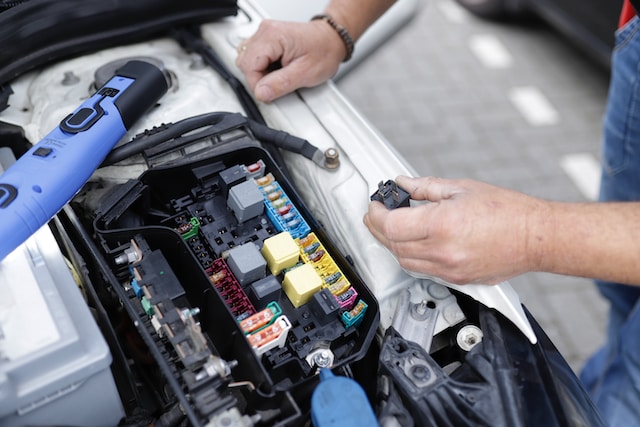Regular vehicle maintenance is essential for ensuring your vehicle’s longevity and optimal performance. However, taking your car in for service can often seem like a daunting task, especially if you’re not familiar with the process. From understanding what to expect to know how to identify honest mechanics, preparing for a car service requires forethought and careful planning. This guide will walk you through four key points to remember when taking your car in for a service, helping you navigate the process and ensure that your vehicle gets the care it needs. Whether you’re a first-time car owner or a seasoned driver, these tips will help make your next service appointment go smoothly.
1. Understand the Service Schedule
The first step in preparing for your car’s service is to familiarize yourself with your vehicle’s recommended maintenance schedule. This can typically be found in your owner’s manual or by contacting the manufacturer directly. The service schedule outlines the specific services that should be performed at different mileage intervals, such as oil changes, tire rotations, and brake inspections.
By understanding your car’s service schedule, you can ensure that all necessary maintenance tasks are addressed during your appointment. If you need Mercedes Benz servicing in Perth, for instance, make sure you communicate your vehicle’s specific needs with the mechanic. Finding the right balance between following the manufacturer’s recommendations and addressing any unique needs your car may have is crucial for keeping it in top shape.
2. Communicate Your Concerns
When scheduling your service appointment, don’t hesitate to communicate any concerns or issues you may be experiencing with your vehicle. This will help the mechanic to properly diagnose and address any potential problems, as well as give you peace of mind that your car is receiving thorough attention. Additionally, if you have a specific issue or symptom that needs to be addressed, be sure to mention it when dropping off your car for service.
A lot of times, people will overlook certain issues because they’re afraid of the cost or don’t want to deal with the inconvenience of having their car in the shop. However, addressing potential problems early on can save you a lot of money and stress in the long run. You can also ask for an estimate of the cost before any work is done to avoid any surprises on your final bill.

3. Ask Questions
As a car owner, it’s important to understand the work being done on your vehicle. Don’t be afraid to ask questions and seek clarification from the mechanic if you don’t understand a specific task or procedure. This will not only help you better understand your car’s needs, but it can also prevent any potential misunderstandings or miscommunication.
A good idea is to ask for a written report or explanation of the work that was completed on your car, including any parts that were replaced and any future maintenance recommendations. This will not only serve as important documentation for your records but can also help you make informed decisions about your vehicle’s upkeep.
Even more so, the mechanic may even be able to provide you with tips and suggestions for maintaining your car in between appointments, such as how often to check your tire pressure or when to replace certain fluids. This knowledge can help prolong the life of your vehicle and save you money on future services.
4. Look for Honest Mechanics
One of the most crucial aspects of taking your car in for service is finding a trustworthy and reputable mechanic. Do your research beforehand and ask for recommendations from friends, family, or online reviews. Look for mechanics who are certified and have experience working on your specific type of vehicle.
When you arrive at the shop, pay attention to how they communicate with you and if they take the time to explain the work being done. Trustworthy mechanics will have no problem being transparent and providing you with detailed information about your car’s service. Some mechanics may even offer to show you the old parts that were replaced and explain why they needed to be replaced. Keep in mind that a good mechanic will prioritize the safety and well-being of your vehicle, rather than trying to upsell unnecessary services.
In conclusion, taking your car in for a service need not be a complex or stressful endeavor. By understanding your vehicle’s service schedule, maintaining open communication with your mechanic, asking questions proactively, and seeking trustworthy service providers, you can ensure your vehicle receives the care it needs. Regular maintenance will not only keep your vehicle running smoothly but can also increase its lifespan and save you money in the long run. Your vehicle is more than just a mode of transportation – it’s an investment. To safeguard this investment, regular servicing is crucial. Whether it’s for routine maintenance or to address specific issues, taking your car in for service is an integral part of responsible car ownership. So, don’t procrastinate – schedule that appointment and keep your car running in optimal condition!
